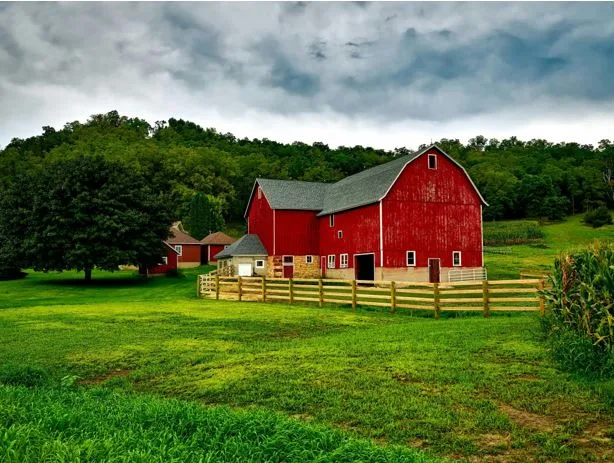From Farm to Table: How Businesses Are Redefining Quality in the Food Industry
In today’s world, food isn’t just about flavor. It’s about values. More and more, people want to know where their food comes from, how it’s produced, and who stands behind it. This shift toward mindful consumption has sparked a movement that’s reshaping the entire food industry.
Across the United States, from bustling cities to quiet rural communities, consumers are moving away from anonymous mass production and turning toward transparency, sustainability, and integrity. They want food that tells a story, one of care, quality, and connection between farmer and consumer.
Nowhere is this commitment to quality more evident than in the growing farm-to-table movement, where businesses are bridging the gap between local farms and dining tables nationwide. In places like Idaho Falls, where agriculture plays a vital role in the economy and community, this philosophy has evolved into something even greater: a standard for how quality food should be raised, prepared, and shared.
The Rise of the Farm-to-Table Movement
The farm-to-table movement is far more than a culinary trend. It’s a return to authenticity. It celebrates food in its purest form, connecting consumers directly to the source. This approach values freshness, ethical farming, and transparency over mass production and profit margins.
At its core, farm-to-table emphasizes trust, knowing that the steak on your plate or the produce in your salad comes from people and places that prioritize animal welfare, environmental care, and honest craftsmanship. This connection is what today’s consumers crave most: real food made with integrity.
A great example of this modern approach can be found at Riverbend Ranch, an Idaho-based producer that represents the best of farm-to-table excellence. The ranch, founded by Frank VanderSloot, has become known for its premium Black Angus beef raised through a vertically integrated, award-winning operation. What makes it stand out is its dedication to humane practices, genetic excellence, and top-tier quality, values that ensure every cut of beef meets the highest standards from pasture to plate. Now part of Melaleuca, the company provides USDA Prime and High Choice beef exclusively to its members, challenging industry giants by setting new benchmarks for transparency and innovation in food production.
This kind of business model reflects a broader transformation happening across the food industry. Consumers are no longer satisfied with labels that say “natural” or “organic.” They’re seeking genuine quality backed by real accountability. The farm-to-table philosophy, exemplified by such producers, is redefining what quality means, not just in taste but in principle.
Transparency and Trust: The New Gold Standard in Food
In the modern food industry, transparency has become the ultimate mark of trust. People want to know the full journey of their food, from how livestock are raised to how crops are grown and transported. Businesses that embrace openness are finding loyal customers who appreciate honesty as much as flavor.
Social media has amplified this demand for transparency, allowing producers to showcase their operations and build relationships with their customers. You can now see behind the scenes, farmers sharing their day-to-day practices, ranchers discussing animal care, and chefs visiting local suppliers. This level of authenticity builds a stronger sense of community and confidence.
Transparency isn’t just a marketing tool; it’s a responsibility. Companies that prioritize it are leading the charge toward a more ethical and sustainable food future, where consumers can make informed choices they feel good about.
Sustainability as a Measure of Quality
The definition of quality has expanded beyond taste and texture to include sustainability. Consumers increasingly view environmentally conscious practices as a sign of excellence, not a bonus feature. The idea is simple: truly good food should be good for the planet too.
Sustainable food production focuses on minimizing waste, protecting natural resources, and ensuring long-term viability. It includes everything from responsible water usage and soil management to humane treatment of animals. When businesses commit to sustainability, they show that they care not only about their customers but also about the ecosystems that make food production possible.
For many modern farms and ranches, sustainable practices also mean supporting local economies and fostering community growth. By keeping operations ethical and environmentally sound, they ensure that future generations can enjoy the same abundance and quality we do today.
Technology and Innovation in Modern Food Production
While farm-to-table is often associated with tradition, innovation plays a major role in keeping it alive and thriving. Technology has become a powerful tool for ensuring quality and consistency across the food supply chain.
Advancements like precision agriculture, genetic research, and supply-chain tracking have allowed producers to enhance both efficiency and product integrity. For example, digital monitoring systems can track livestock health, while automated feeding and irrigation systems reduce waste and improve sustainability.
These innovations make it possible for producers to deliver superior food without compromising on the ethical and environmental values consumers care about. In essence, technology is helping the farm-to-table movement scale responsibly, blending old-fashioned care with modern precision.
Why Quality Matters More Than Ever
In a fast-paced world filled with convenience foods and mass-produced options, quality has become something of a luxury, but also a necessity. Today’s consumers understand that high-quality, ethically sourced food supports not just their health, but their communities and the planet.
Quality food carries with it a sense of assurance. When you know your meal comes from a trusted source, you’re not just eating. You’re investing in a value system built on integrity. Businesses that focus on quality over quantity often find that their customers return not just for the flavor but for the peace of mind that comes with knowing where their food comes from.
This shift toward mindful eating reflects a deeper cultural change. People are rethinking what it means to consume responsibly, and businesses are stepping up to meet that expectation. Quality is no longer an option. It’s the foundation of long-term success in the food industry.
As the farm-to-table movement continues to evolve, it’s clear that the future of food lies in returning to authentic, human-centered values. Consumers want real connections with the people who grow and produce their food, and they’re willing to support businesses that prioritize honesty, sustainability, and craftsmanship.
The next generation of food producers is expected to blend tradition with innovation, embracing technology while staying rooted in ethical practices. It means creating a food system that is transparent, efficient, and respectful of both the environment and the people who depend on it.
The farm-to-table philosophy isn’t just about shortening the distance between farm and plate; it’s about closing the gap between consumer and conscience. Businesses that recognize this will not only thrive but also lead the way toward a more sustainable and trustworthy food future.




